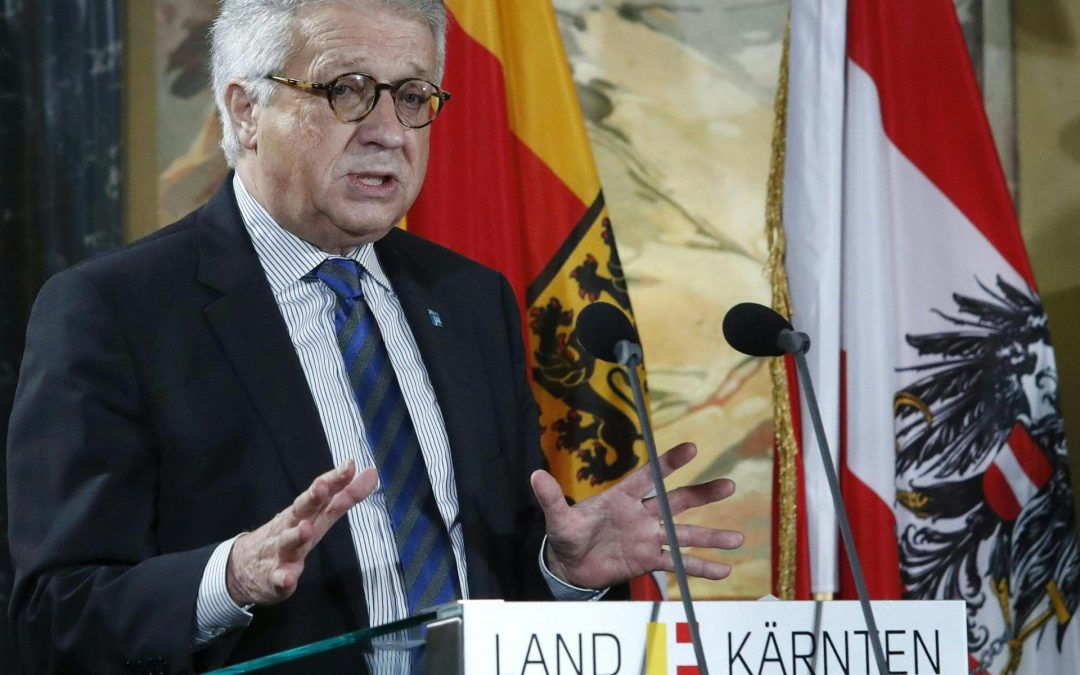Vienna (APA) – The Austrian top diplomat Wolfgang Petritsch sees the relations between Europe and the USA permanently shaken. “There will be no going back. It will settle a bit again, but on a different level,” said the president of the Austrian Marshall Plan Foundation on Monday at a panel discussion in Vienna. Europe must now reflect on its own future. “That is at stake, that is what it is about.”
Petritsch presented the second edition of the book “Europe and the USA – What remains of the transatlantic relationship?” at the House of the European Union in Vienna, which he co-edited with Patrick Horvath. The long-time diplomat Petritsch emphasized that the current US government is opposing the American values on which the European Union is also based. Europe is “alone” and has “reached a point where we must look much more strongly and decisively at ourselves,” he demanded, among other things, a strengthening of the common European foreign and defense policy.
“I am in favor of shaking up unanimity significantly”
“Simply increasing the defense budget will not be enough. If there is no development towards a European army in the security area, the additional spending will not make a difference,” emphasized Petritsch. Similarly, the head of the Austrian Social Democrats (SPÖ) delegation in the European Parliament, Andreas Schieder, expressed himself. It must be ensured, for example, that a large part of the increased defense spending “is not spent back in the USA, resulting in the same or even increased dependency at the end.”
Schieder called for a reduction of the national veto right, including in the enlargement negotiations. “I am in favor of shaking up unanimity significantly,” he emphasized. Regarding enlargement, he also looked towards Iceland. If the Nordic country decides to resume accession talks, these could be completed “relatively quickly.” “They do not have to queue behind Ukraine or Moldova; they are relatively far ahead.”
Little veiled criticism of the socialist government in Spain
The two SPÖ politicians – Petritsch is also a party member – expressed clear sympathies for an EU-Mercosur trade agreement. The problems in the agricultural sector are “not unsolvable,” said Petritsch. Schieder stated that the agreement would also land on his desk as a Member of the European Parliament and that this question “must be answered at the European level and not nationally.” In light of a negative decision by the Austrian Parliament regarding Mercosur, Schieder said that Austrian parties should take into account that “the world has developed further on this issue.” “I prefer to have the Mercosur countries as partners or they develop more strongly into the BRICS world,” said Schieder, referring to the loose association of Brazil, Russia, India, China, and South Africa.
The SPÖ politician also criticized the “inconsistencies” in the foreign policy positioning of EU states. “Some countries still have not recognized Kosovo, while at the same time they believe that recognition is the best solution, and we can give the Western Sahara to the Moroccans,” he said in the presence of the Spanish ambassador Aurora Mejía, clearly alluding to the socialist government in Madrid, which is one of the advocates for the recognition of Palestine, but at the same time does not recognize the independence of Kosovo from Serbia along with four other EU states and has also given up its efforts for the independence of its ex-colony Western Sahara, annexed by Morocco. (10.11.2025)
 go to the original language article
go to the original language article
